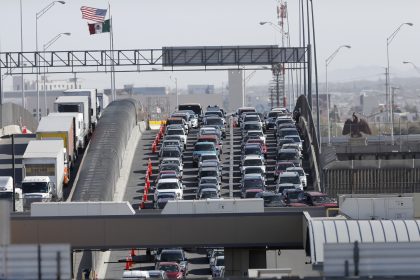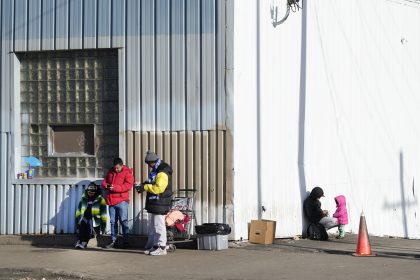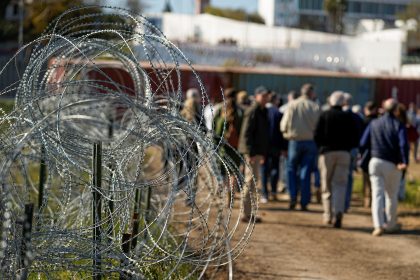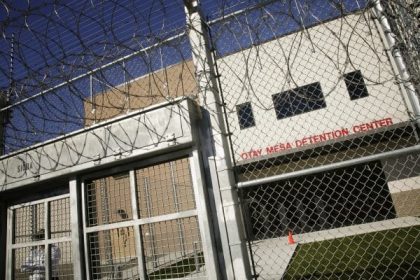After Drastic Policy Changes, More Than 20,000 Cubans Asylum Seekers Are Fighting Deportation

MIAMI — Caught between immigration policy changes championed by two very different administrations, a record number of Cubans are now fighting deportation, as they try to gain asylum in the United States.
The Trump administration opened deportation proceedings against 25,044 Cubans in fiscal year 2019, mostly asylum seekers at the U.S. border, according to data from immigration courts obtained by the Transactional Records Access Clearinghouse (TRAC) at Syracuse University,
About 20,000 of those cases remain pending.
Those figures reflect a considerable increase in the number of Cubans trying to reach the U.S. compared to the trends in the first two years of the current administration. They also stand as a sharp reminder of the different reality Cuban immigrants now face after losing benefits that previously protected them from deportation.
In the final days of his administration, in January 2017, as part of the process of normalizing relations with the Cuban government, President Barack Obama eliminated the “wet foot, dry foot” policy that allowed Cubans arriving at the border to remain legally in the U.S. under a special authorization known as parole.
The Trump administration reversed many of the measures taken by Obama, but not the elimination of that legal protection, despite launching a fierce campaign of sanctions and criticisms against the repressive actions of the Cuban government.
The number of Cubans reaching the southern border peaked in 2016 when U.S. Customs and Border Protection reported the arrival of 41,523 Cubans. Then, Obama’s decision, as well as the current administration’s restrictive immigration policies, managed to stem the flow, and the figure dropped sharply to just 7,079 in fiscal year 2018.
But a worsening economic crisis on the island has prompted a new exodus of Cubans, even as the situation on the border changed dramatically.
According to CBP figures, more than 21,499 Cubans arrived without visas at the Mexican border in fiscal 2019. The fiscal year begins on Oct. 1and ends on Sept. 30.
Weak economic growth, aggravated by the ongoing crisis in Venezuela and a flurry of U.S. sanctions, “continues driving a considerable amount of Cuban citizens abroad, especially to South Florida,” said Jorge Duany, director of the Cuban Research Institute at the Florida International University.
“On the other hand, the popular perception that Cubans who manage to enter the United States can still qualify for the Cuban Adjustment Act and eventually regularize their legal status is a key incentive to emigrate,” Duany added.
Yet many on the island ignore that even if the Cuban Adjustment Act still stands, fewer Cubans may benefit from it.
Since June 2019, most Cubans who arrive at the border to apply for asylum must remain in Mexico until a judge issues a decision on their cases, according to new procedures set in the Migration Protection Protocols (MPP). As a result, these Cubans cannot prove to be “physically present” in the United States for one year, one of the requirements to obtain a green card under the Cuban Adjustment Act.
“Eligibility for the Cuban Adjustment Act requires, among other things, that an alien be admitted or paroled into the United States and have a one-year physical presence in the United States,” a Department of Homeland Security spokesperson told the Miami Herald.
“Regardless of MPP, Cuban nationals who are apprehended at ports of entry or near the border may be subject to removal proceedings in the same manner as nationals of other countries,” the official added.
According to the most recent data obtained by TRAC, between June and November 2019, 7,362 Cubans were returned to Mexico. There, many wait in camps near the border for their names to appear on lists published by immigration authorities, along with data on when and where their hearings will be held.
If they don’t get asylum, they can appeal, but they must stay in Mexico, said Miami-based immigration lawyer Wilfredo Allen.
Some asylum seekers who can prove that their lives are in danger in Mexico or need medical treatment, for example, may be admitted to the U.S. They may remain detained until the end of the process or be released with parole, said Allen, who represents Cubans in detention centers for immigrants in several states.
Immigration court records also show how difficult it is to obtain asylum in the United States, even for those fleeing from what the current administration has called “the troika of tyranny”: Cuba, Venezuela and Nicaragua.
Not everyone who arrives at the border can request asylum, only those who initially demonstrate that their fear of persecution if they are sent back to Cuba is “credible.” The outcome of the process depends a lot on the judge and the state where the case is heard, said Professor Juan Carlos Gómez, director of an immigration and human rights clinic at FIU.
Of the 1,559 asylum decisions regarding Cubans issued in the last fiscal year, a little more than half, 796, were negative.
“The number of people who obtain asylum does not reflect the human rights situation on the island,” Gómez said. “The administration complains about human rights violations in Cuba, but is sending many Cubans back without consideration.”
The Cuban-American Bar Association (CABA) is studying how current immigration policies impact Cuban asylum seekers “because this issue presents human rights implications and is greatly informed and impacted by the policies of the Cuban totalitarian regime, which has a long and documented history of persecuting its people,” said Candice Balmori, a member of the CABA board of directors.
But the resources of organizations such as the FIU clinic or CABA are not enough to help the thousands of Cubans with pending cases and those continuously reaching the border.
Obtaining asylum “is arbitrary and difficult, most people do not know what they have to prove,” Gómez said. “Most do not have access to legal advice. It’s like performing surgery on yourself.”
———
©2020 Miami Herald
Visit Miami Herald at www.miamiherald.com
Distributed by Tribune Content Agency, LLC.
























